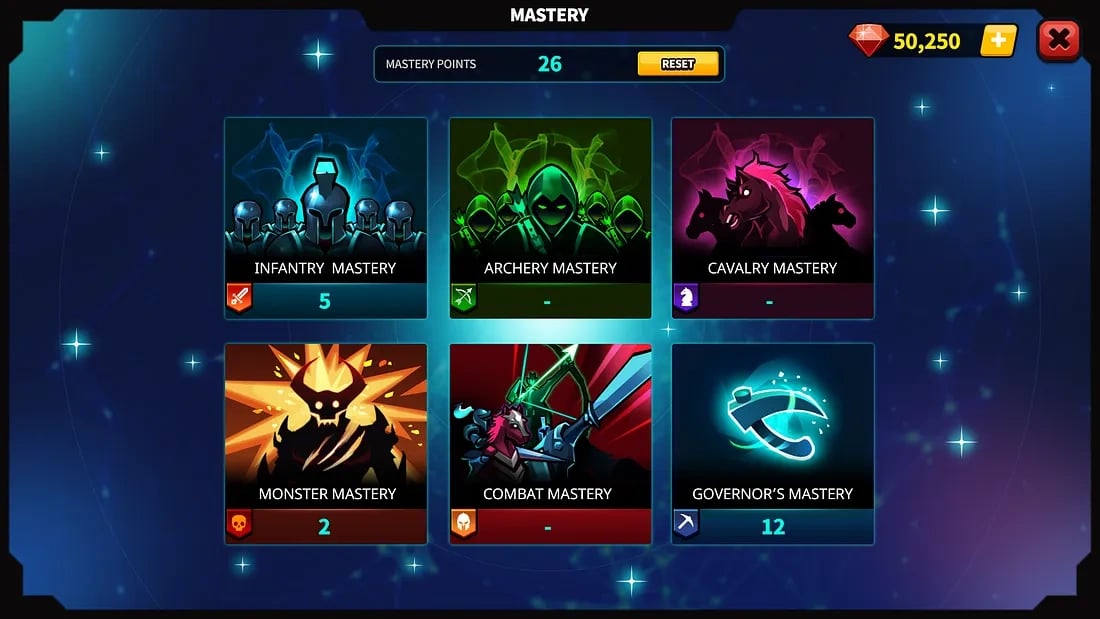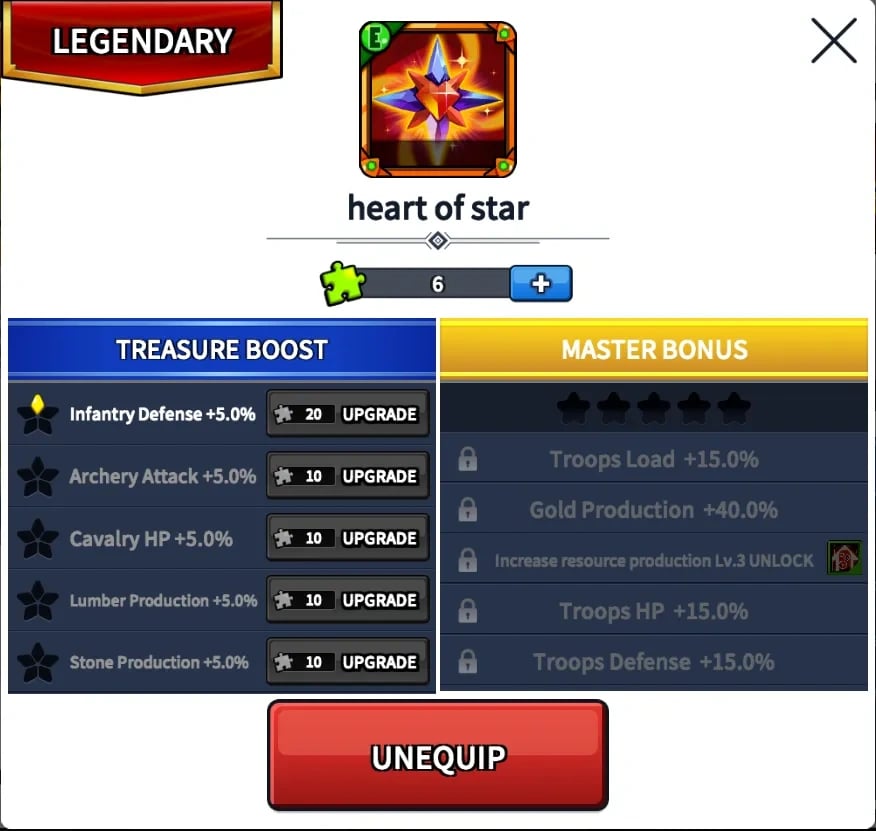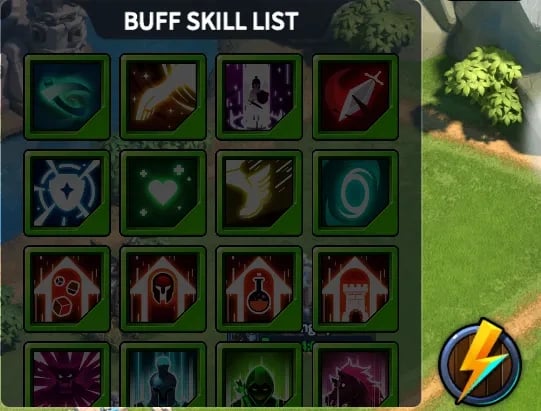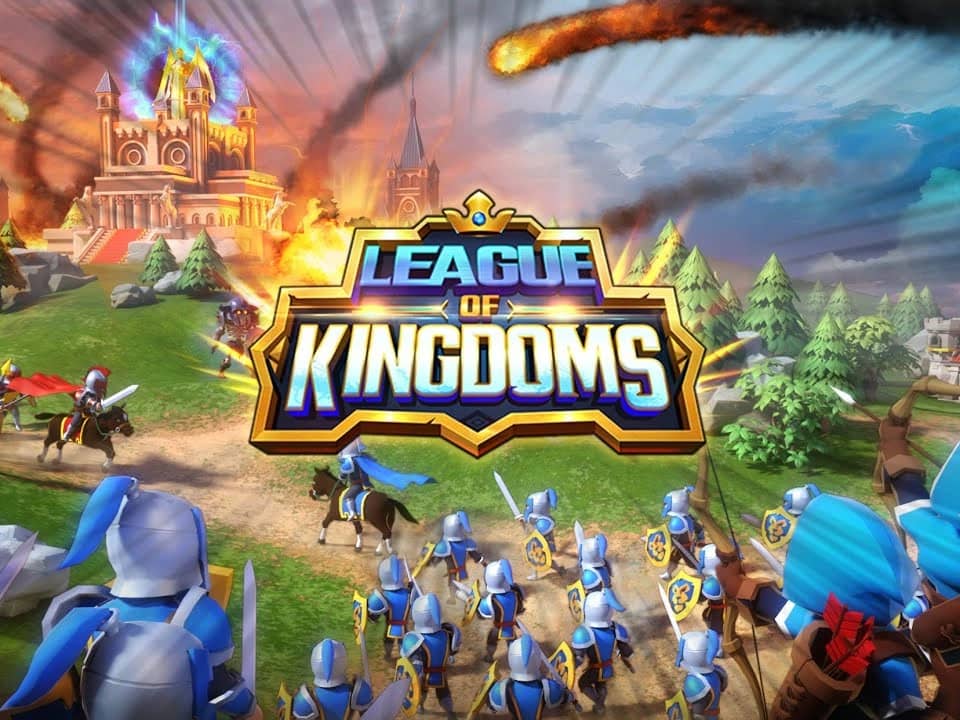Subscribe to wiki
Share wiki
Bookmark
League of Kingdoms
The Agent Tokenization Platform (ATP):Build autonomous agents with the Agent Development Kit (ADK)
0%
League of Kingdoms
League of Kingdoms is an NFT strategy game using play-to-earn mechanics. Users can play this blockchain game on mobile phones or PC. League of kingdoms is one of the first DeFi massive multiplayer online games.[1][2]
Overview
League of Kingdoms is a blockchain-based MMO that allows users to earn money by playing. Players can use the game to create their kingdom, establish alliances, compete against other players, and take part in raids. New League of Kingdoms participants will start with a basic kingdom that must be upgraded and built. Aside from the core kingdom, players must acquire resources from the surrounding lands in order to expand and grow their army. [3]
Gameplay
The gameplay involves building a kingdom, forming alliances, competing against one another, and acquiring resources.
Corn, wood, stone, gold coins, and crystals are among the available resources. Players can mine them in-game, acquire them as task rewards, or purchase them as NFTs. These resources will be crucial in defeating opponents and gaining influence in the League of Kingdoms blockchain game. Crystals are the most valuable resource because they can almost increase anything in the game. Users can, for example, raise armies faster or move from point A to point B faster.
Alliances with other kingdoms may be established, much as they were in medieval times, and this increases the player's prospects. Being a part of an alliance has advantages, not only in warfare but also in terms of resource and development incentives. Players can work together to create an army and defenses before the other players are ready to begin their conquest. Because League of Kingdoms is a free-to-play game, users do not need to own land to participate. Meanwhile, players who purchase a LAND square acquire the LAND Non-Fungible Token (NFT). As a result, validating ownership is simple, paving the way for a governance structure in which all participants vote for their leaders.[4]
Battles
Players in League of Kingdoms can engage in fights against other players or monsters to earn prizes and loot. Players can assault and pillage one other's towns and resources.
Players may form Alliances with their friends to battle against other players. Alliances are helpful not just during attacks, but also while a kingdom is under attack.
Troops from both sides combat each other in player-vs-player engagements. Depending on the strength of each side's forces, fighting might result in losses and injuries. Furthermore, one player can deplete the resources of the other and perhaps entirely destroy the other's country.
Earning
There are two major ways to earn in the game. First, by owning land, users may generate passive income. Every landowner receives 5% of the in-game resources gathered on their property by players, and 10% if the game's net income from in-app purchases is split with landowners in DAI, a stablecoin soft pegged to the USD. Players can make money by selling resources like NFTs on OpenSea or by working on the land. Furthermore, virtual land is a commodity that may be traded by players. The lowest level property was purchased at $13 at the first primary land sale in December, while level 2 was marketed at $25. There were six distinct land levels in all, with the most costly one costing $240. More servers will be deployed as League of Kingdoms grows, perhaps increasing income. Landowners on each server have the same land coordinates.
The second method to get money is to own the game's resources, coin them as NFTs, and then sell them on OpenSea. This is aimed towards gamers who do not want to pay money in order to obtain an NFT.[5][6]
League of Kingdoms LANDs
Inspired by Steven Spielberg's blockbuster Ready Player One, the League of Kingdoms game economy is based on LAND ownership. The LANDs were designed to function as closely as possible to real-world real estate, which gamers may claim legitimate ownership over. [10]
The League of Kingdoms began with a 65,536 LAND genesis continent on the Ethereum blockchain. Every square inch of the LAND will be a Non-Fungible Token (NFT). Up to 16 kingdoms can be found in each LAND. The capacity may be reduced if there are additional objects like as Sanctum, mines, woods, and so on. In other words, each LAND is a 4x4 scale, provided that a kingdom is the smallest unit in the continent.[7]
Land Types
In League of Kingdoms, there are various types of LAND available for players to acquire. These include Agricultural, Forest, Hill, Mountain, Plain, and Waterfront lands. Each type of land has its own unique characteristics that can provide different advantages to the player's kingdom. For example, Agricultural lands provide a bonus to food production, while Forest lands can provide wood and have a higher defense value. [17]
Land Features
LAND in League of Kingdoms comes with different features that can enhance a player's kingdom. Depending on the type of land, players can expect to find resources and bonuses that provide various advantages. For example, Agricultural lands provide a bonus to food production, while Waterfront lands offer increased trading opportunities. Additionally, each type of land has unique features that affect gameplay, such as different terrain types that affect troop movement and strategic placement of buildings. [17]
Land Upgrades
Players can upgrade their LAND in League of Kingdoms to increase its value and capabilities. Land upgrades are essential for players who want to optimize their kingdom's production and defense. Upgrading LAND unlocks more resources, increases its defensive capabilities, and enhances the production rate of resources. Players can use the in-game currency or cryptocurrency to upgrade their LAND. [17]
Land Auctions
LAND can be acquired in League of Kingdoms through an auction system. Players can participate in land auctions to acquire new LAND by bidding with in-game currency or cryptocurrency. The auction system is an essential feature of the game that enables players to expand their kingdoms and acquire valuable resources. Players can also sell their LAND on the auction market to earn a profit or trade with other players to acquire more strategic pieces of land. [17]
Owning Lands
The LANDs were available for purchase through a series of presale periods before the launch, followed by a number of public sales that took place in May 2020. Land portal, an online dashboard that displays LAND information and other resources, is also available for the sale and administration of LANDs. [10]
The fact that purchasers own the coordinates in addition to the specific pieces of land purchased is an essential feature of the LAND in League Of Kingdoms. [10]
In addition, if the genesis continent becomes too crowded, the community can generate other continents with the same specifications. However, regardless of how many continents are established on the blockchain, players have the right to claim ownership of the LAND at the coordinates they possess. [10]
Land Ownership Benefits
The Ethereum blockchain provides permanent ownership, interoperability, and safe trustless transactions. Landlords can also benefit from valuable incentives.
Reward Pool
A reward pool is built up depending on a specific proportion of the total net revenue produced in the game. Its purpose is to recognize and honor LAND owners for their contributions to the development of the LANDs.[8]
Land level and Dev. Points
At the start of the game, LANDs have Land levels ranging from Lv1 to Lv6 (Majorities are Lv.1). However, kingdoms established on top of the LAND, as well as their development activities, has an impact on the development points (referred to as “D-Points”). The D-Points are then used to establish the LAND's Development Level (hence referred to as "D-Level"). To put it another way, each LAND's development points will rise at its own rate, resulting in varying levels of development across the continent.
There are two ways to get more Dev-Points:
Development Activities: As Kingdoms become more active in gathering resources in the Land, Dev-Point will rise. Any kingdom on the land that mines, gathers, or collects Dev-points will earn them. The Dev-points are used as the primary metric for determining the Land level.
Crystals: As players absorb crystals, their D-Points will rise. Crystals may be found in mines and purchased from the game store. Another distinguishing characteristic of the crystal is that customers profit not only from its own LAND but also from neighboring LANDs. D-Points will be increased on LANDS near the most active districts as a result of this innovation. Alliances may also buy neighboring LANDs strategically to improve their alliance's development efficiency.
Drago Economy
Drago
Dragos are dragon-like creatures that reside in the League of Kingdoms continents and were historically tamed by royal courts. They have unique abilities and are good companions for mankind. The Drago has seven distinct parts, each representing an element: Horn, Eye, Head, Body, Wing, Leg, and Tail. The elements are Fire, Aqua, Light, Terra, and Dark, and each elemental part provides different ability buffs. Legendary parts amplify the elemental buffs, providing even more storage capacity for LOKA. [18]
Players can acquire Dragos to acquire Dragon Soul Amber, which can be used to forge Dragon Soul Token (DST), the utility token of the League of Kingdoms. In order to unlock the full potential abilities of their Dragos, players must train them. Players can also rent Dragos and perform a powerful enchantment ritual called Chimeric Fusion to upgrade them. [18]
One of the advantages of Drago is that they can be deployed to aid attacking marches, rallies, and defense in the game. Each Drago has unique buffs that can aid the player's troops, such as increasing their HP, defense, attack, speed, and storage capacity. [18]
Dragon Soul Token (DST)
The Dragon Soul Token (DST) is the utility token of the League of Kingdoms. DST tokens can only be minted through in-game content, which involves earning Dragon Soul Amber from daily quests, Drago battles, and ancient spirit stones, among others. DST has diverse use cases within the game and can be used to breed a new Drago, upgrade a lair, stake to train Dragos, and unlock new game modes like the Dragonian Dungeon. [18][19]
Dragon Soul Caverns
The Dragon Soul Caverns are an essential part of the Drago economy in League of Kingdoms. These mines are scattered throughout the game's continents and are where players can find the valuable Dragon Soul Ambers (DSA). In order to gain access to these resources requires players to first tame a Drago and house them in their kingdom's lairs. [19]
Dragon Soul Amber (DSA)
Dragon Soul Amber is a valuable resource found within the Dragon Soul Caverns, guarded by fearsome death soldiers. Only those who can tame Dragos can dare to conquer the archaic mine and cast magic spells to tokenize the resources that are harvested from the field. [19]
Utility
- They can be transformed into the Polygon-based token, the Dragon Soul Token (DST), through on-chain minting. With an initial exchange rate of 1:100 (100 DSA = 1 DST), there is a variable exchange rate applied which may change depending on the stability of the game economy. [19]
- DSAs can be used to upgrade Drago Lairs within the player's kingdom, allowing them to host more Dragos. If they don't upgrade, they are limited to just four Dragos. [19]
- DSAs can be consumed to cast spells for Chimeric Fusions. These require Dragon Soul (DS) extracted by sacrificing another Drago and DSA. The outcome of the fusion will either result in an enhanced Drago or a failure. In the case of a failure, DSAs are returned in lieu to compensate for the sacrifice of the Dragon/DS. [19]
Rewards System
These are benefits that can be gotten from highly developed LANDs.
- Rewards: The smart contract for the game will set aside 10% of the after-tax/fee game revenues to reward LAND owners for their support to development. The incentive will be in the form of assets such as the LAND's cryptocurrency on the blockchain. LAND owners must pay to the in-game LAND tab in order to claim the accumulated daily benefits. Landowners, for example, can build resources and reserves (mines, farms, etc.) within the LANDs and/or contribute in the development of the LAND by playing their own kingdoms. (Some activities will be deemed contributions if they exceed the contribution threshold.)
- Resources efficiency: Land that has been well developed will have a higher Land level and more resources (farm, gold mines, monsters, etc) More active users and alliances will flock to the LANDs as a result of the plentiful reserves. More kingdoms will boost Dev points, even more, creating a positive feedback loop.
- Resource Distribution: Owners of well-developed LANDs will have access to additional and higher-level resource mines (for example, gold mines). A 5% part of the resources gathered by any kingdom on the LAND will be added to the resource reward pool for landowners to claim. These resources are not taken from harvesting kingdoms and are instead created to repay the landlords. (also known as 'resource matching')
These resources may be packaged and minted into Resource NFTs, which can then be sold on blockchain exchanges. [11]
Totems
A totem is an old treasured relic or artifact that represents the area underneath it. It's a non-transferable item that may be placed on any Land. Each of these relics has its own set of magical abilities and characteristics. The original landowners (for presale land parcels) will get a free totem box per parcel. The totem boxes will be distributed as in-game goods that can be redeemed for real money. [12]
Lord System
Lords are similar to players in a role-playing game. In order to level up, they can earn XPs. Each player's kingdom's Lord XP bar can be found in their profile section. Lords can level up by gaining experience (XP) points in one of two ways: by hunting monsters or by drinking XP potions. Players can gain experience points by hunting monsters or purchasing XP potions from the market. [13]
There are 6 masteries players can choose to train their lord, which are:
- Infantry: Various infantry-related masteries and skillsets are included in this mastery track. They're effective techniques to boost the strength of soldiers.
- Archery: Various archer-related masteries and skillsets are included in this mastery track. They're effective techniques to improve archer's marksmanship.
- Cavalry: Various horseman-related masteries and skillsets are included in this mastery track. They're effective techniques to increase the capacity of cavaliers.
- Monster: This mastery track will assist players in leading their soldiers to monster hunting success. Player warriors will bring more valuable riches from monster hunting missions if they master monsters.
- Combat: This mastery track improves the PvP ability of troops. This ability can increase the size of the march or possibly offer an advantage in invading and fighting forces hidden behind the castle wall.
- Governing: player's lord will become a wiser leader as a result of this mastery. On every front, a good leader may lead the kingdom to be more productive and efficient.

Treasure and Skills
For the hegemon of the Genesis continent, treasure and skills are essential. It was discovered during the public beta that there is a peculiar building in the inner castle dubbed the "Treasure-house." This structure is dedicated to the management of various prizes obtained through monster hunts or special packages. Treasures are unique artifacts that allow a kingdom to utilize a variety of magical abilities (buffs and debuffs) against another kingdom or against themselves. [14]
Each treasure is made up of two parts: the treasure and the generic pieces.
Treasure Pieces
This is a fragment of the treasure. This is the first step in putting the treasure together and unlocking its many abilities. [14]
️Generic Pieces
This is a generic prize that comes in four tiers: normal, magic, epic, and legendary. With the exception of a few highly exceptional treasures, these parts can be used across all treasures of the same tier. [14]
Users can gain access to the 'treasure boost' by collecting components. When each treasure boost is fully filled, the master benefits are unlocked (takes 150 pieces to unlock 5 leaves of the treasure boost). The order of treasure boosts has no bearing on unlocking the master bonus. In descending order, any fully unlocked treasure boost can activate a master bonus. [14]
The heart of the star, for example, is a legendary object for which you have 6 pieces. You can unlock the second leaf of the first treasure boost (currently, infantry defense +5.0 percent ) by collecting 20 legendary pieces. The enhancement will be raised to +10 percent infantry defense once unlocked. You can also use 10 pieces to unlock the remaining four boosters. However, you must fill one full flower in the treasure boost to unlock the first master bonus on the right-hand side (typically where special talents fit). [14]

Skills
In the battlegrounds, players can utilize a variety of skills to buff or debuff their own kingdom or those opposing it. These abilities can only be obtained by obtaining an enchanting treasure and its associated parts. The skill list will grow over time and will not be complete, as new treasures, magics, talents, and effects will be introduced. It can be used in two ways: for a player's own kingdom or against their opponents' kingdoms. [14]
Buff Skill Sets
Buff skills are magical abilities that benefit players. Skills can increase productivity, power, speed, or even summon monsters around the user. A circular mark with a thunder sign may be found in the lower right area of the game screen, which contains a list of buff talents. [14]
When the user expands the list, they can view all of the buff skills that are available. Only those unlocked through player loot will be highlighted. Other abilities will be dormant. [14]

Debuff Skill Sets
A debuff icon can be found if a player travels to a kingdom that is not one of his allies. Each user can see a list of various skillsets that can be unlocked and deployed against foes by unfolding the symbol. In terms of effect, boost and debuff skills do not stack. Any use of skill will take precedence over a previous one. If the duration and effects of the earlier skill are replaced by the later one. [14]
Alliance Buildings
As part of the LAND 2.0 revamp, 3 new alliance buildings have been added. They are the alliance center, alliance tower, and alliance outpost. [15]
Alliance Center
The new alliance hub, Alliance Center, will play a vital part in alliance gaming. Alliance territory buffs are available from the Alliance Center. The Alliance Center will designate the zone where alliance members can gather resources. Alliance resources will be held at a rate of 5% of all resources collected in the district surrounding alliance hubs. These materials will be crucial in the construction of additional alliance structures, such as the alliance tower and alliance outpost. [15]
Caveats
Alliance buildings can be built by both the alliance commander (R5) and R4 officers, but only R5 officers can demolish them. Any alliance is free to construct the first alliance center. Buffs to the alliance center do not stack with other territorial buffs (shrine, congress). Other structures > Congress > Shrine Each alliance can only have three alliance hubs. [15]
The Alliance Center can withstand 200 attacks/rallies and has a capacity of 2 million troops.
Alliance tower
Alliance farmers and gatherers have a safe sanctuary in the alliance tower. External threats will be protected from the areas surrounding the tower by resource-gathering protection. [15]
Gathering protection: hostile soldiers cannot assault gathering troops in the tower district.
Durability: Alliance tower can sustain 100 attacks/rallies.
Troops capacity: Each tower can house up to 1 million troops.
Alliance teleport: Alliance kingdoms can teleport directly to the tower district by using their alliance teleport item from the alliance shop.
The benefits of Alliance towers do not stack with those of other territories (shrine, congress). [15]
Alliance Outposts
Alliance outposts can be constructed as a frontline camp for staging swift and lethal raids against enemy alliances. To carry out a strategic attack against the opposing kingdoms, try to position outpost near the hostile hive. [15]
Territory buffs: An alliance outpost provides 5% battle-related benefits (Troops HP, Defense, and Attacks).
Alliance teleport: Alliance kingdoms can teleport directly to the outpost district by using their alliance teleport item from the alliance shop.
Durability: 100 attacks/rallies can be sustained by the Alliance tower.
Troops capacity: Each tower has a capacity of one million soldiers.
Buffs from Alliance outposts do not stack with those from other territories (shrine, congress).It's also worth noting that the alliance's constructions aren't restricted to the three structures listed above. It is presented as a platform that will dramatically enhance and expand alliance warfare and methods. In the future, more structures will be introduced to broaden players strategic art of battle.
Collaborations
PlayDapp
League of Kingdoms included support for selling Non-Fungible Token (NFT) goods on PlayDapp. PlayDapp is an NFT item trading platform that specializes in gaming items. By leveraging blockchain, PlayDapp ensures gamers' ownership of things while also allowing them to acquire and exchange items internationally. Users can hold NFT assets in the game, such as land or resources, and freely exchange these NFT things on the PlayDapp Marketplace (https://playdapp.com) using the PlayDapp Token (PLA). [16]
To honor the launch of 'League of Kingdoms' on the PlayDapp marketplace, PlayDapp organized a one-of-a-kind event. Market fees were reduced to 0% until March 6th, and consumers that trade 'League of Kingdoms' NFT on the marketplace will be rewarded. As part of the launch, a unique game prize package, the PlayDapp X League of Kingdoms game pack, were given to randomly selected gamers. [16]
Kyber Network
During its Land Non-Fungible Token (NFT) Pre Sale, League of Kingdoms (LoK) will use Kyber Network's technology. It will take ETH and other ERC-20 payments via Kyber on its Land Portal. League of Kingdoms users can now acquire unique Land tokens that can be used on the LoK platform and beyond using ETH or ERC20 tokens such as DAI, MANA, ENJ, KNC, BAT, WBTC, SNX, LINK, thanks to the Kyber integration.[9][1]
See something wrong?
The Agent Tokenization Platform (ATP):Build autonomous agents with the Agent Development Kit (ADK)
